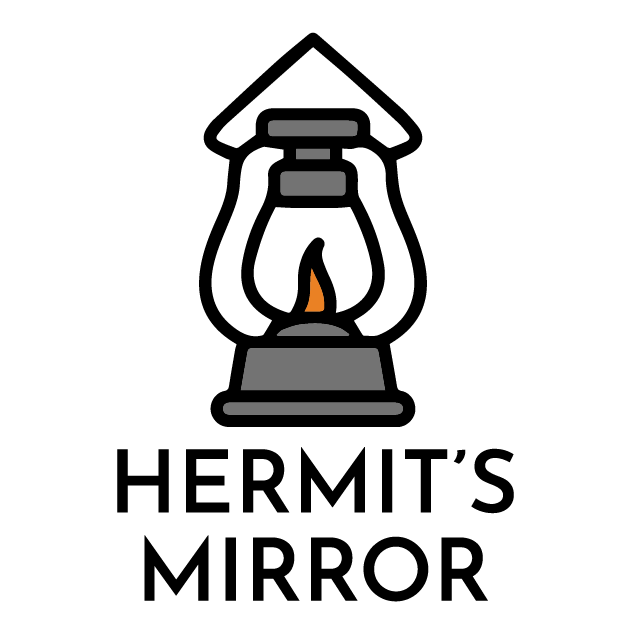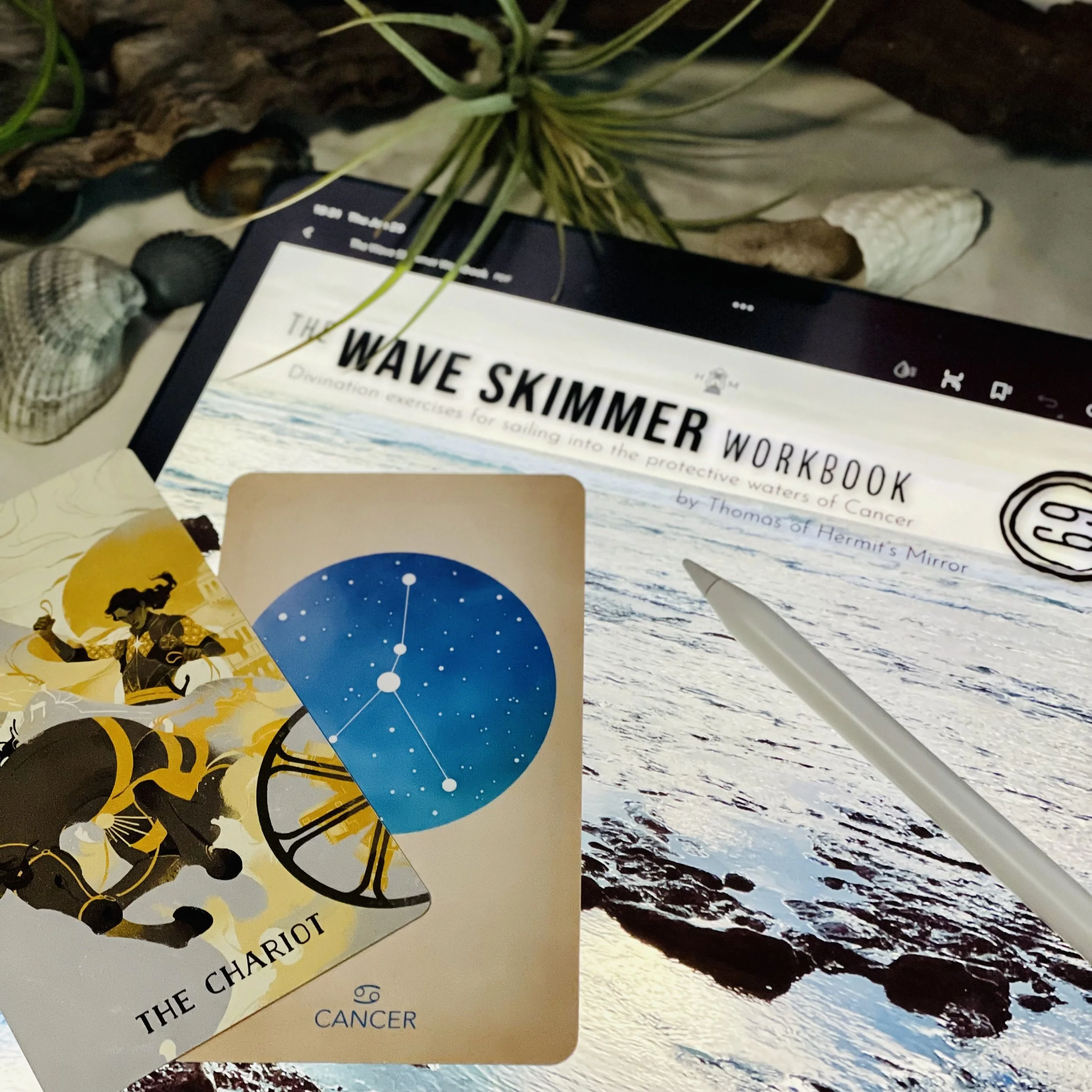Why a Tarot Workbook Helps Your Tarot Work
There are five primary reasons I make (and use) workbooks for divination exercises.
My current list of divination exercise workbooks include the following:
Awaken the Court Cards, a workbook to bring the court cards to life;
Exploring Inner Darkness and Finding the Light Within, a mini shadow workbook;
Forecasting Your Life Line, a workbook for learning a new divination system or reinforcing your foundations quickly;
The Page of Pens Writing Workbook to help you write a story inspired by what’s in your soul; and
astrological divination exercise workbooks:
The Wave Skimmer Workbook for connecting to the energy of Cancer and maintaining your spiritual hygiene as a diviner.
The Sky Dazzler Workbook for reclaiming your crown and having fun with light and shadow through the brilliance of Leo energy.
The Lamp Lighter Workbook for finding your way through the night sky with Virgo’s precision.
The Truth Speaker—People Pleaser Workbook for seeing your potential for connection from both sides of Libra’s mirror.
The Ice Breaker Workbook for working for clearing and restarting with ambitious Capricorn.
The Star Seeker Workbook for seeing clearly what could be with Aquarius.
The Moon Dreamer Workbook for diving deep into the psyche with Pisces.
The Fire Starter Workbook for getting moving with the force of Aries.
And of course, more are coming!
First, you need to record your experience if you want to progress in your divinatory practice.
It is the single most important thing that I did to transform my own tarot practice. I made the same kind of progress in six months with a journal that I had made in the previous 15 years doing whatever the hell I felt like doing and rarely thinking back on it. It’s one of the first things I teach in my tarot fundamentals intensive, Read Tarot like a Nerd.
Sure, you can post a picture to Instagram or Tumblr and use it as your own little tarot journal. Many of us have done that over the years, and when Instagram was a different kind of social platform, I designed divination challenges on social media to facilitate that regular documentation. But it’s not the same.
When was the last time you actually looked back at one of those posts?
And if you are one of the very few people who regularly reference those old posts scattered throughout your feed, did you find that the caption you shared was as open and free as you needed to capture the personal relevance your reading had for you at the time?
To improve in your divination practice, you need a private journal where you can be vulnerable and honest, and it needs to be something that you can easily reference later. You don’t need a workbook for that, but a workbook for divination exercises will serve that purpose.
Second, a set of exercises can keep you on track.
Staying on track to complete a set of exercises isn’t easy. It’s useful to have something to measure against, and a workbook helps you see what you’ve done and what’s left to do before it is complete.
Perhaps you are able to complete a specific goal without marking off your progress along the way, but I’m not one of those people. I ran a half-marathon after never having run more than two miles (in my life, let alone recently). It was all thanks to a specific four-month training program that told me what to do. I could not have gotten to the point of running 13.1 miles if I did not have a lot of smaller steps along the way. I don’t think I know anyone who could.
There may be themes for a month that are inspired by a season or astrological transit, but those are just excuses to find time to do the work. What matters is doing the work.
A workbook helps you do that work by consolidating the exercises into one place for easy reference, easy documentation, and easy self-assessment. How many of the exercises have you completed? How many still wait for your brilliant soul to make them meaningful?
Third, a set of specific, related, and iterative exercises develops your skills by layers.
Many of us spend a lot of time honing our intuition, and a specific set of exercises designed for a general (even if niche) audience might feel counterintuitive. After all, how would the author of that workbook know what guidance you need in your life right at that moment?
They don’t. That’s not the point. The point is to provide you with exercises that will tap your intuition in different ways. For my workbooks, the goal is also to provide you with information that will be valuable at various points in your life. You may find an exercise that’s relevant to your current situation, but that’s not necessary for the work to make you a better diviner and someone who finds it easier to live in alignment with your true inner self.
The divination exercises that I create for my workbooks are often exercises for “inner work.” They combine personal inventory-taking, shadow work, self-awareness, goalsetting and future-mapping, recollection and reflection. It’s self-care from all angles. My exercises also help you develop your ability to divine and to connect with your intuition.
That practice is cumulative. When you have your divinations all in one place and relating back to a certain set of themes (and often back to earlier exercises), you develop that train of thought. When you know that you may have to pull another rabbit out of your intuitive hat, you start sourcing rabbits. You pay attention. You continue to think about that theme or topic. And in my exericses, you revisit. You may even revise.
It's possible to do this with random exercises from disparate sources, but it’s not easy. It’s a lot more work, and chances are good that you already have enough work to do. With a workbook, you don’t even have to rewrite the exercises into your journal. I know that seems like a negligible task, but it’s not.
All of this is designed to help you refine your practice. You’re calibrating your inner compass, and you’re testing your divination skillset. Being well-developed in these areas will help you in just about everything in life.
Fourth, a record of your progress helps motivate you when you hit a plateau.
This is something that I learned in fitness coaching: it’s easy to give up when you can’t see your progress objectively. Having a workbook saved on your computer or phone or in the cloud makes it easy to look back at what you did, even years later. You may be embarrassed or surprised or inspired by what you wrote in the past, but you’ll have evidence of what once was.
This value proposition of a workbook is different from having a written record to review for personal refinement and reflection. This is about progress-tracking. And I assure you that there will be days when you will need evidence that you are not the same reader you used to be because you’ll think you’re in the same place as you used to be.
And while progress tracking is usually designed to help you see how far you’ve come, I think it’s important to remember that our earlier selves might have had some moments of genius and true connection. It’s worth being reminded of those moments, even if a few of them seem more advanced than where you are in that moment because that person still exists within you. That version of you was less developed than you are now, and they still managed that? Think what you’ll be able to do when you next get a good day like that earlier version of you had.
Last, taking the time to use your workbook is an act of life-affirming indulgence.
You must make time for your divinations when you’re a diviner. A workbook encourages you to slow down and experience the reading fully, to enjoy a deep and thoughtful reading for yourself.
You may be wondering who has time to do a deep, thoughtful reading. Who has time to even find their workbook before doing a reading, let alone actually write anything in it? You should.
If you don’t at least occasionally have time to do that, something’s off. There’s no point in doing the reading for yourself in that state. No daily card pull practice is going to save you from such a misalignment of timing, such deprioritization of yourself and your inner state.
I know it can be hard. I don’t always read for myself every day. When my schedule is especially busy, I conduct a deep reading for myself only once in a week. But when I do make time for it, I make sure that it’s worthwhile. I make sure that it’s indulgent. I let it remind me that I am (and my divination work is) valuable, even when it’s just for me.
Working with a specific set of exercises that you know will be valuable (as in my workbooks) can help reduce the stress of finding the “right thing” to do. It’s prearranged, and that makes it easier, as mentioned earlier. But exercises from a workbook will also require you to get into the moment. Reading through an exercise is different from throwing some cards down the way you normally would. You can’t make the same assumptions. You can’t take the same well-worn shortcuts.
That can be frustrating when you’re in a hurry or you don’t understand what the exercise is meant to accomplish, but even that helps bring you more into the moment of the reading.
That helps you clarify your intentions.
It helps you slow down.
Divination isn’t a school assignment that’s due in fifteen minutes. It’s self-care. Allow yourself to enjoy the experience of personal inner connection on your own schedule. You may have a difficult reading, but there’s no reason why it shouldn’t offer you some valuable healing and self-empowerment.


![The Earth Shaker Workbook [PDF]](https://images.squarespace-cdn.com/content/v1/5b4df902e2ccd14b9be6ccf5/1714399421641-NE2E04US830L1GNO11L7/Earth+Shaker+Workbook+cover.jpeg)
![The Page of Pens Writing Workbook [PDF]](https://images.squarespace-cdn.com/content/v1/5b4df902e2ccd14b9be6ccf5/1685225047038-W3QIIBPR7PWB8RAAPKM5/PageOfPensWorkbook_Ad_.png)
![Awaken the Court Cards: A workbook to bring the court cards to life [PDF]](https://images.squarespace-cdn.com/content/v1/5b4df902e2ccd14b9be6ccf5/1635114760943-W1HUG7J7NF5LTUEKQH08/IMG_3145.jpeg)
![The Fire Starter Workbook [PDF]](https://images.squarespace-cdn.com/content/v1/5b4df902e2ccd14b9be6ccf5/1711595324366-IR0U90PAVYL3W6E9IYS5/Fire+Starter+Workbook_Square+01.png)